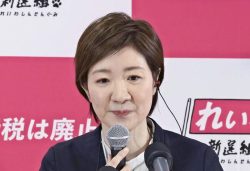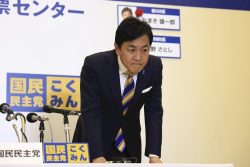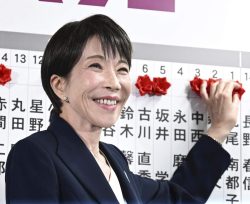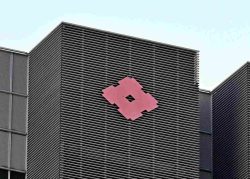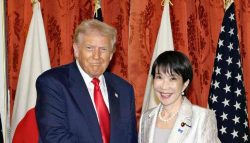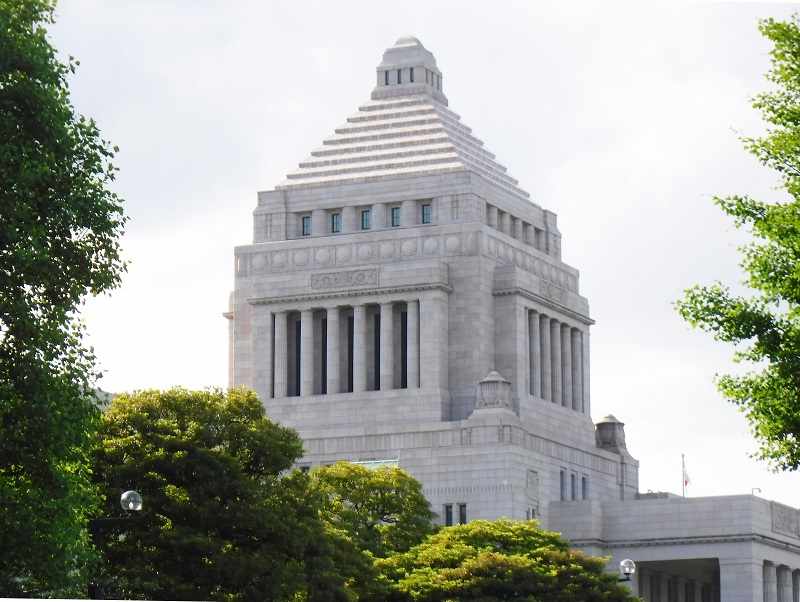
The Diet Building in Chiyoda Ward, Tokyo
20:00 JST, June 23, 2022
Question: What are the characteristics and roles of the House of Councillors?
Answer: The House of Councillors was created in 1947 to replace the House of Peers, which was abolished after World War II. The House of Councillors is the upper house of the bicameral system, a framework used in many developed countries. Upper house members are elected to six-year terms, and half come up for reelection every three years.
The upper house is called “the house of reconsideration” for its position of deliberating on and improving bills passed by the House of Representatives.
The House of Councillors is not dissolved during a term, and is therefore also expected to serve as the “seat of good sense” where neutral, fair deliberations are held regardless of party affiliation and without being bound by political considerations.
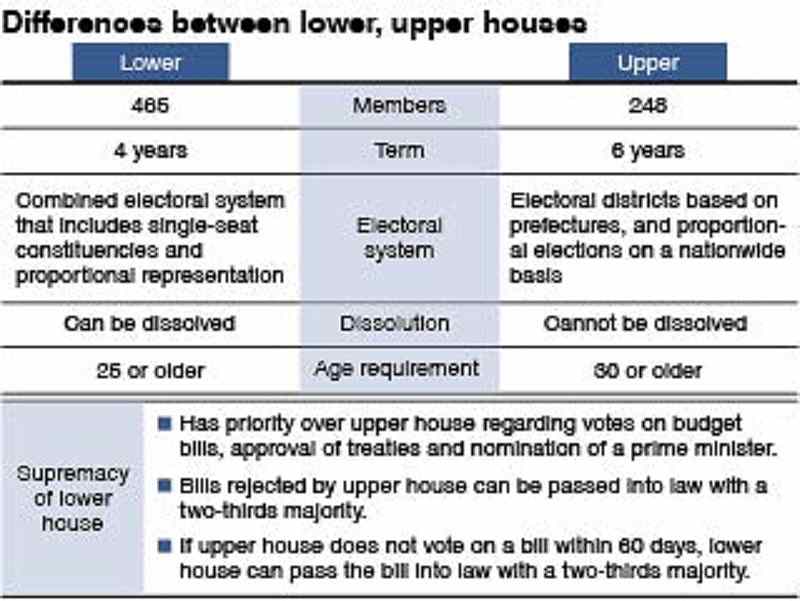
Q: What are the differences between the upper and lower houses?
A: The Constitution provides for the supremacy of the House of Representatives over the House of Councillors, as lower house members serve four-year terms and the lower house can be dissolved in the middle of a term, making it easier to reflect the voice of the people.
When the two houses differ in their decisions on the nomination of the prime minister, budget bills and the approval of treaties, priority is given to the lower house’s decision.
If the upper house rejects or does not vote on a bill within 60 days after it is passed by the lower house, the bill can lso be passed into law by a majority of at least two-thirds of the lower house members present at the Diet.
Q: What are the issues surrounding the upper house?
A: If a divided Diet occurs — in which the ruling party holds a majority in the lower house while the opposition holds a majority in the upper house — the problem arises of an overly strong House of Councillors with considerable veto power.
A divided Diet occurred after the ruling Liberal Democratic Party suffered a disastrous defeat in the 2007 upper house election. The Democratic Party of Japan, the largest party in the upper house, opposed maintaining the provisional gasoline tax rate and the appointment of a Bank of Japan governor, throwing the Diet into turmoil.
Reflecting on this situation, discussions are underway at the council for the reform of the upper house election system as to how the upper house should be organized. The council comprises representatives of the various factions of the House of Councillors.
Top Articles in Politics
-

LDP Wins Historic Landslide Victory
-

Japan Tourism Agency Calls for Strengthening Measures Against Overtourism
-

LDP Wins Landslide Victory, Secures Single-party Majority; Ruling Coalition with JIP Poised to Secure Over 300 seats (UPDATE 1)
-

Voters Using AI to Choose Candidates in Japan’s Upcoming General Election; ChatGPT, Other AI Services Found Providing Incorrect Information
-
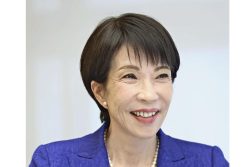
Japan’s Prime Minister: 2-Year Tax Cut on Food Possible Without Issuing Bonds
JN ACCESS RANKING
-

Japan Institute to Use Domestic Commercial Optical Lattice Clock to Set Japan Standard Time
-

China Eyes Rare Earth Foothold in Malaysia to Maintain Dominance, Counter Japan, U.S.
-

Man Infected with Measles May Have Come in Contact with Many People in Tokyo, Went to Store, Restaurant Around When Symptoms Emerged
-

Japan, Qatar Ministers Agree on Need for Stable Energy Supplies; Motegi, Qatari Prime Minister Al-Thani Affirm Commitment to Cooperation
-

Australian Woman Dies After Mishap on Ski Lift in Nagano Prefecture



